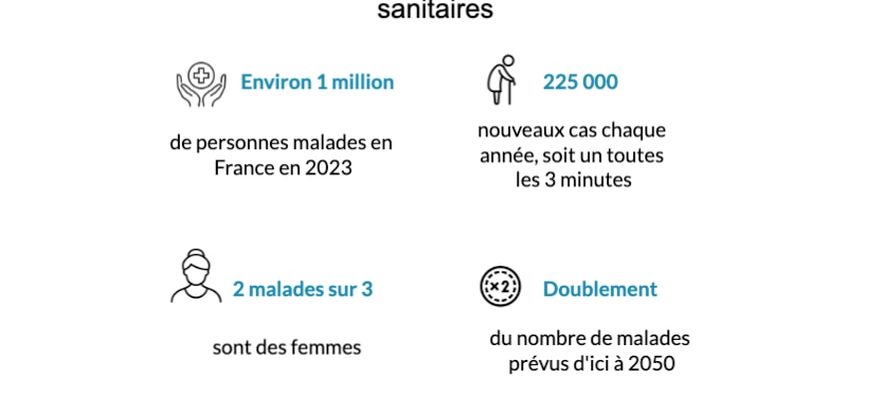In France, 1.2 million people are affected by Alzheimer’s disease. It appears most often after the age of 65, and remains the most common neurodegenerative disease in the population aged over 80. With 225,000 new cases diagnosed each year (i.e. 1 case every 3 minutes), the number of sick people is expected to double by 2050.
Although it was described 110 years ago by the German neurologist Alois Alzheimer, its causes are still debated. The main symptoms of this disease are known to the general public, including episodes of memory loss and language disorders. Other consequences, however, remain less identified, such as “changes in mood, withdrawal from work or social activities, or even loss of the faculty of judgment”, explains on its website the Overcoming Alzheimer’s Foundation. The disease affects the sexes unequally: women represent two thirds of patients over 65 years old. A gap which is explained in particular by the difference in life expectancy (in 2022, life expectancy at birth is 85.2 years for women and 79.3 years for men, according to INSEE ). This disease is also the fourth cause of death in France.
Alzheimer’s: tomorrow’s challenge
© / The Express
A glimmer of hope across the Atlantic
Certain recent scientific advances have brought hope to the tens of millions of people diagnosed around the world. Last January, the American Medicines Agency authorized a treatment, lecanemab, whose trials made it possible to reduce the cognitive decline of sick people. Another treatment, donanemab, could also be authorized across the Atlantic shortly.
However, these new treatments are still far from being the miracle solution. Already, they are still far from being approved in France, even if the European Medicines Agency could rule on the case of lecanemab by the end of the year. Furthermore, they would slow the development of the disease, but not cure it, or regain lost mental abilities. Significant side effects were also noted during the various tests, which should significantly restrict the public who can have access to it.
Despite everything, Julien Lagarde, neurologist at Sainte-Anne Hospital in Paris, did not hesitate to qualify this progress as “the greatest advances that clinical research has seen in the last 20 years” for Alzheimer’s disease, in a press release from the Foundation for Medical Research published last August.
